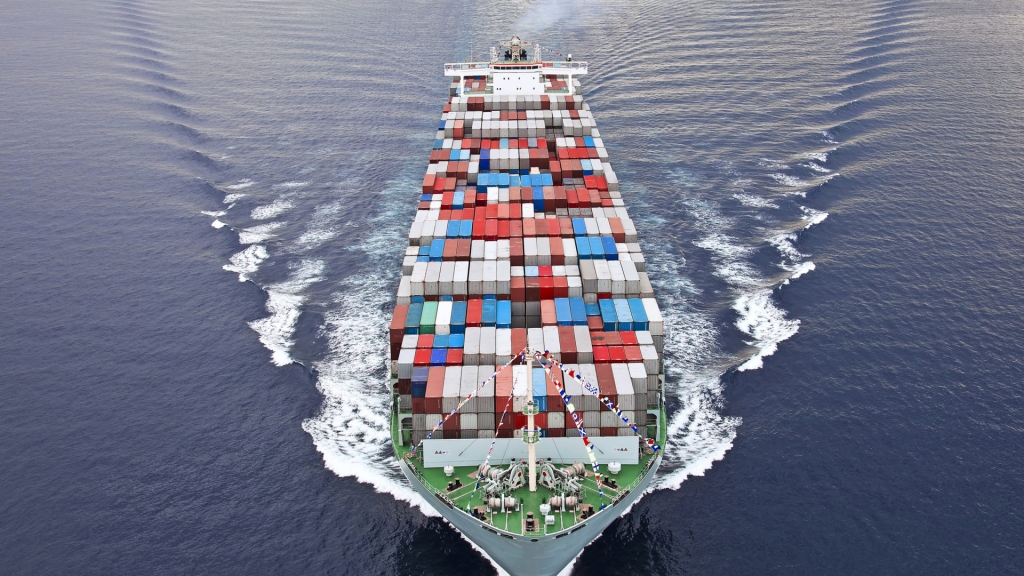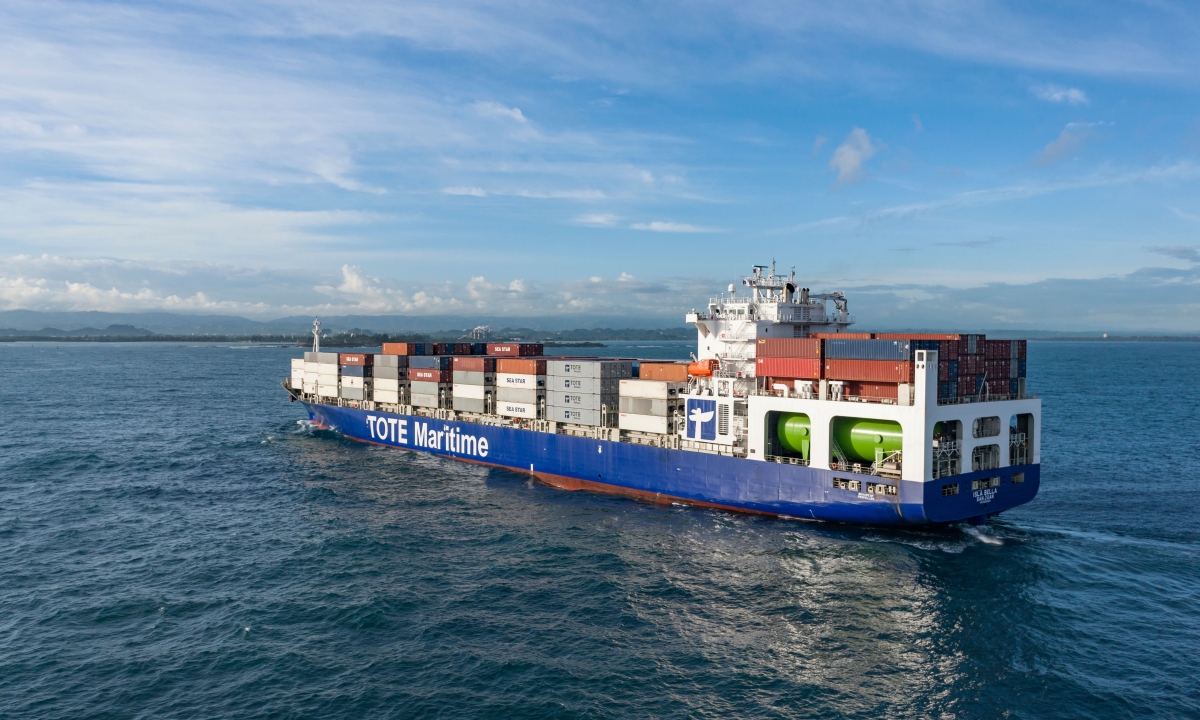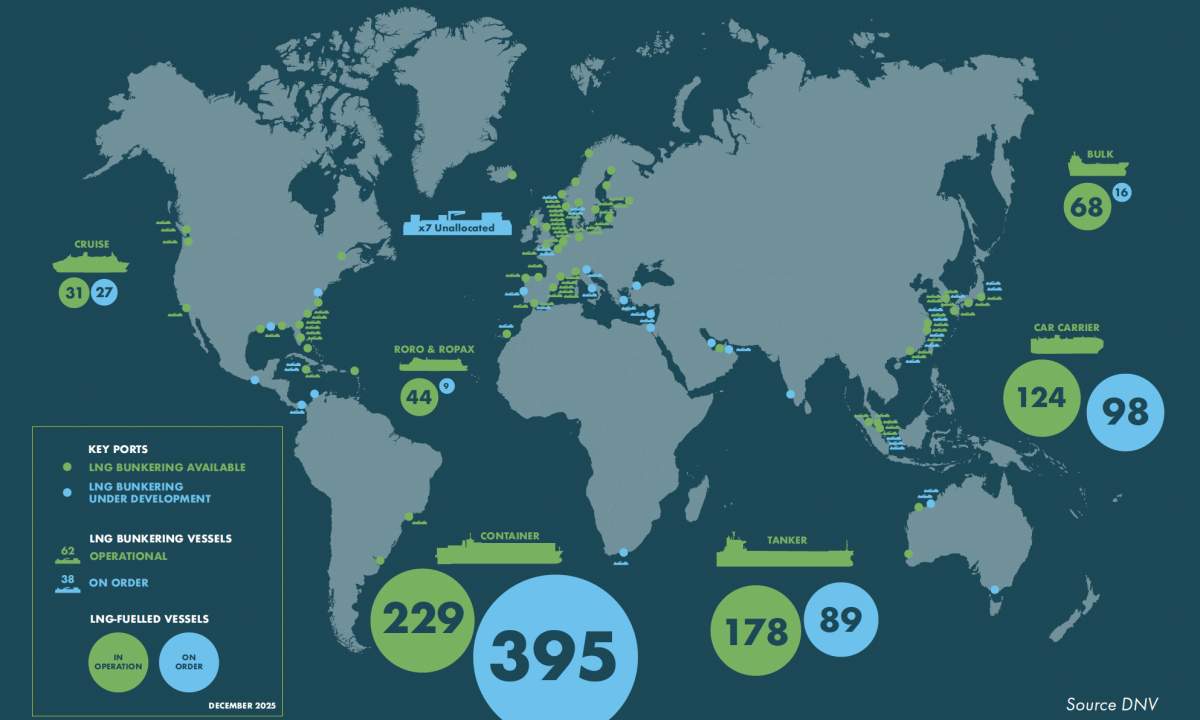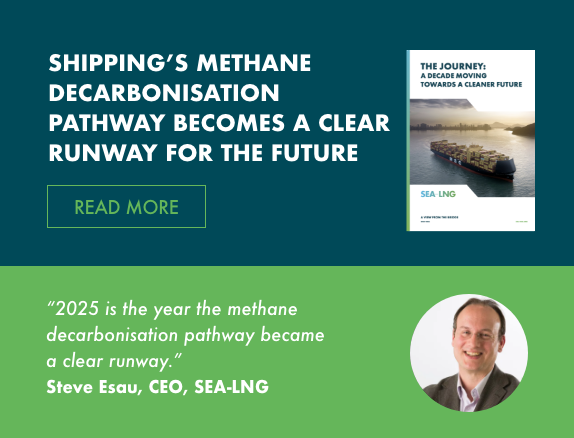23rd January 2019
INDEPENDENT STUDY REVEALS COMPELLING INVESTMENT CASE FOR LNG AS A MARINE FUEL

LONDON, 23rd JANUARY 2019: SEA-LNG has today released an independent study revealing a strong investment case for LNG as a marine fuel in the container shipping market.
“We commissioned this study from independent simulation and analytics expert Opsiana to support shipowners and operators in analysing their investment opportunities in an informed way, while simultaneously providing deeper analysis of the assumptions that go into the 2020 decision process.”
Peter Keller, Chairman, SEA-LNG
He continued: “The study unequivocally shows that for this vessel type, on this trade route, LNG as a marine fuel delivers the best return on investment on a net present value (NPV) basis over a conservative 10-year horizon, with fast payback periods ranging from one to two years.”
The results of the study, which analyses the case of a newbuild 14,000 TEU container vessel operating on an Asia-US West Coast (USWC) liner routing and compares six fuel pricing scenarios, challenge commonly held assumptions in relation to the economic performance of LNG bunkers.
The results are even more compelling given the investment scenarios are compiled and compared based upon on a route with very little voyage time (8%) in Emission Control Areas (ECAs). LNG is also proven to be the best investment across a broad spectrum of business climates from strong freight markets with elevated vessel operating speeds to weak freight markets where slow steaming is employed.
The study further indicates that LNG provides a greater ROI than alternative compliance solutions, including the installation of Exhaust Gas Cleaning Systems (EGCS), or scrubbers, across 5 out of 6 of the fuel scenarios explored. It also reveals a diminishing CAPEX hurdle, competitive energy costs, the stability of LNG pricing, and the realistic cost of scrubbers. Moreover, these higher returns were achieved without factoring in the significant additional benefits gained[1] by choosing LNG as a more environmentally-friendly marine fuel; a choice that increasingly possesses a currency value as major global brands and beneficial cargo owners demand cleaner logistics chains.
The analysis is supported by SEA-LNG’s 36 member organisations, who contributed maritime expertise and current, timely background information and data from across the LNG value chain.
While this study focuses specifically on the investment case for LNG within a key liner trade route, the coalition is collaborating with third parties on further independent research which will analyse the investment case for different vessel types and additional liner trade routes.
Keller concluded: “At a time when shipowners and operators deserve factual information with which to analyse options in an informed way, there have been too many unqualified assumptions about the investment case for LNG. While there remain many unanswered questions about the choice and prices of marine fuels going into 2020, SEA-LNG will continue its commercially-focused studies to provide authoritative intelligence regarding the investment case for LNG as a marine fuel for shipowners, shipyards, ports and wider stakeholders.”
To access the full investment case study, please click here.
[1] Benefits gained in terms of CO2 generated and pollutants produced per TEU transported.
Notes to editors
- For the latest SEA-LNG news, please visit: https://sea-lng.org/news-and-views/
- To share news about the coalition, please tweet us @SEA-LNGcoalition
About SEA-LNG
SEA-LNG is a UK-registered not for profit collaborative industry foundation serving the needs of its member organisations committed to furthering the use of LNG as an important, environmentally superior maritime fuel.
SEA-LNG has members across the entire LNG value chain including providers of the product, users, engine and asset suppliers, and class societies. SEA-LNG is already recognised as an International leader in LNG matters. Each member organisation commits mutually agreed human resources, data analysis and knowledge sharing in support of SEA-LNG initiatives and activities and financially contributes via a membership fee. SEA-LNG is guided by a board, which is led by chairman Peter Keller, who was elected as Founding Chairman in 2016.
SEA-LNG’s members include: ABS, Carnival Corporation & plc, Clean Marine Energy, DNV GL, Eagle LNG Partners, ÉNESTAS, Exeno Yamamizu, Fearnleys AS, Gasum, GE, GTT, JAX LNG, Keppel Gas Technology, “K” LINE Group, Lloyd’s Register, MAN Energy Solutions, Maritime and Port Authority of Singapore (MPA), Marubeni Corporation, Mitsubishi Corporation, Mitsui & Co., Ltd., Naturgy, Novatek Gas & Power, NYK Line, Petronet LNG, Port of Rotterdam, Qatargas, Shell, Société Générale, Sumitomo Corporation, Total, TOTE Inc., Toyota Tsusho, Uyeno Group of Companies, Port of Vancouver, Wärtsilä, and Yokohama-Kawasaki International Port Corporation (YKIP).
About Opsiana
Opsiana is a Scandinavian consultancy providing innovative solutions to the most complex business problems. Opsiana’s consultants are recognized optimization, simulation, and analytics experts with deep knowledge of the shipping and marine fuels segments. Opsiana has developed proprietary algorithms for the optimization of liner networks, strategic and tactical fuel procurement, and marine pilotage. Visit www.opsiana.com to see how we can help your company leverage digitalization and advanced analytics to thrive in a rapidly evolving regulatory and technological landscape.
Media enquiries
Lisa Davison
BLUE Communications
M: +44 (0) 7936 699 235 / T: +44 (0)1865 514 214
lisa.davison@blue-comms.com



